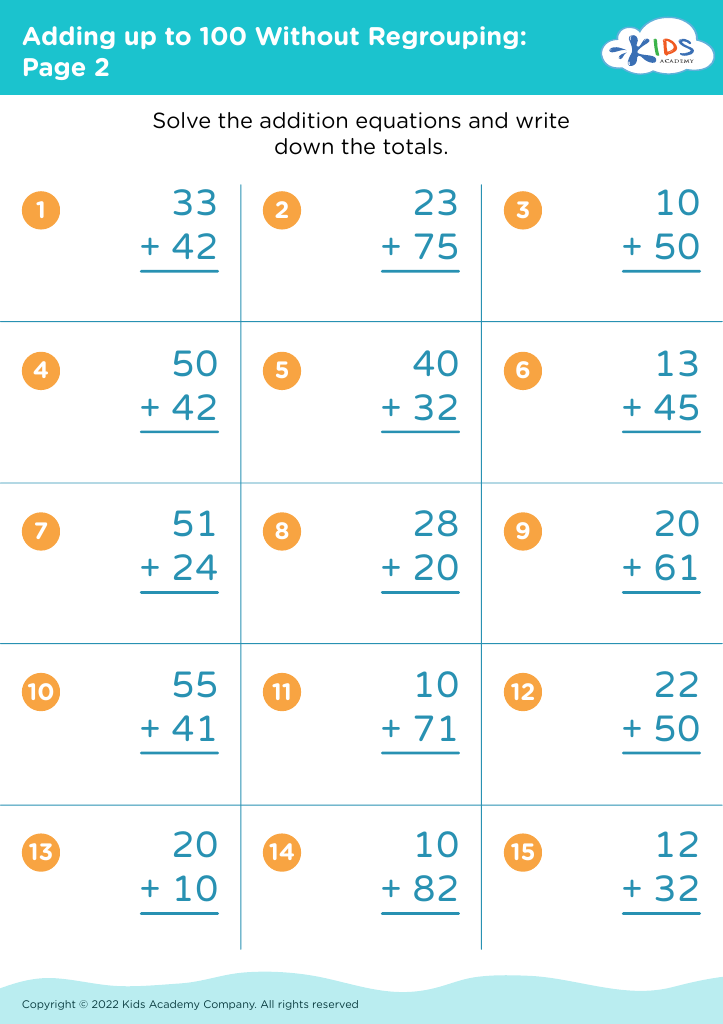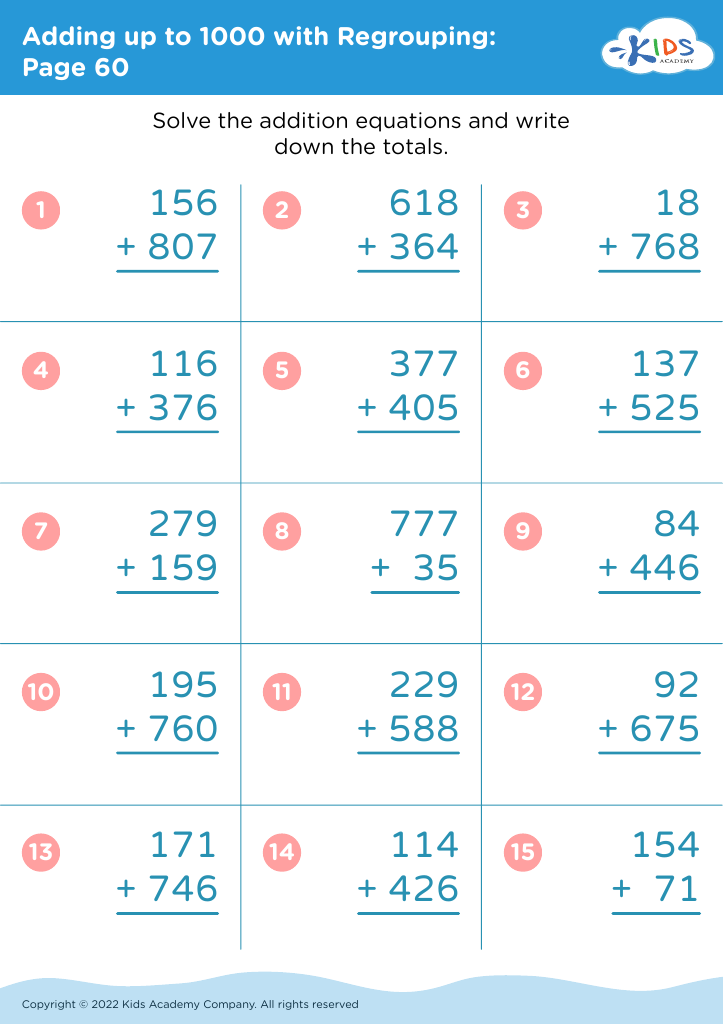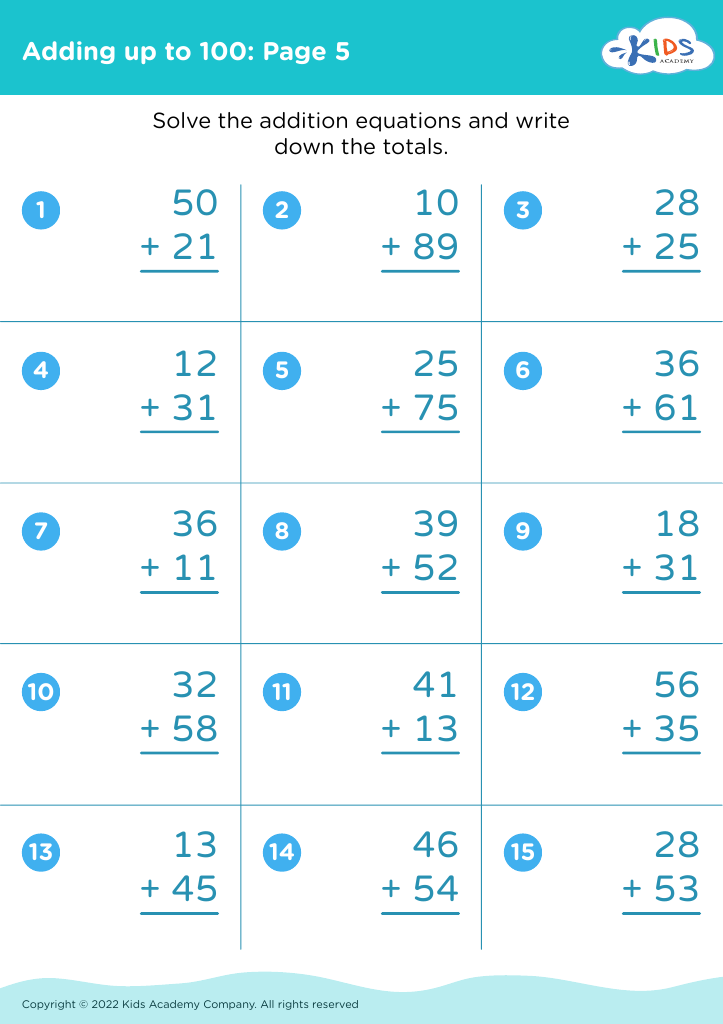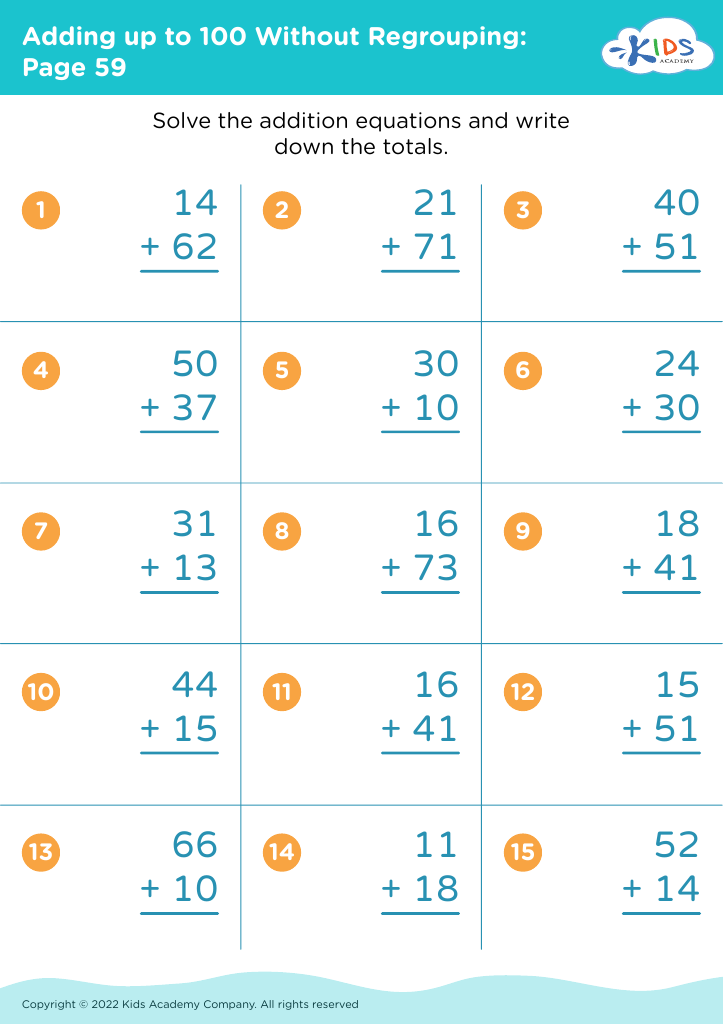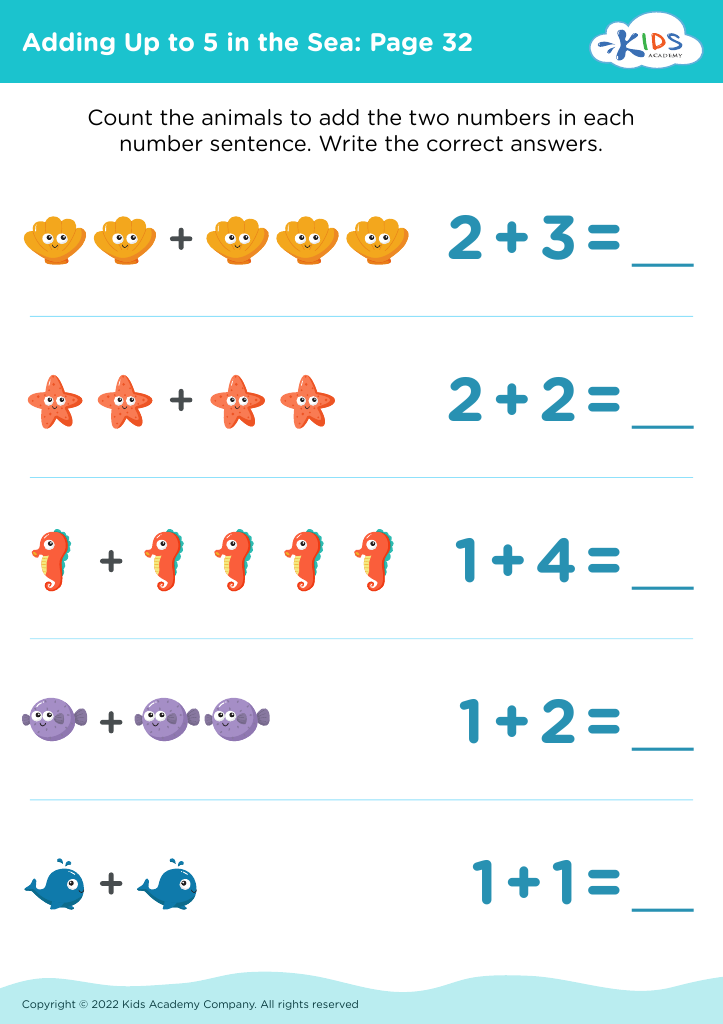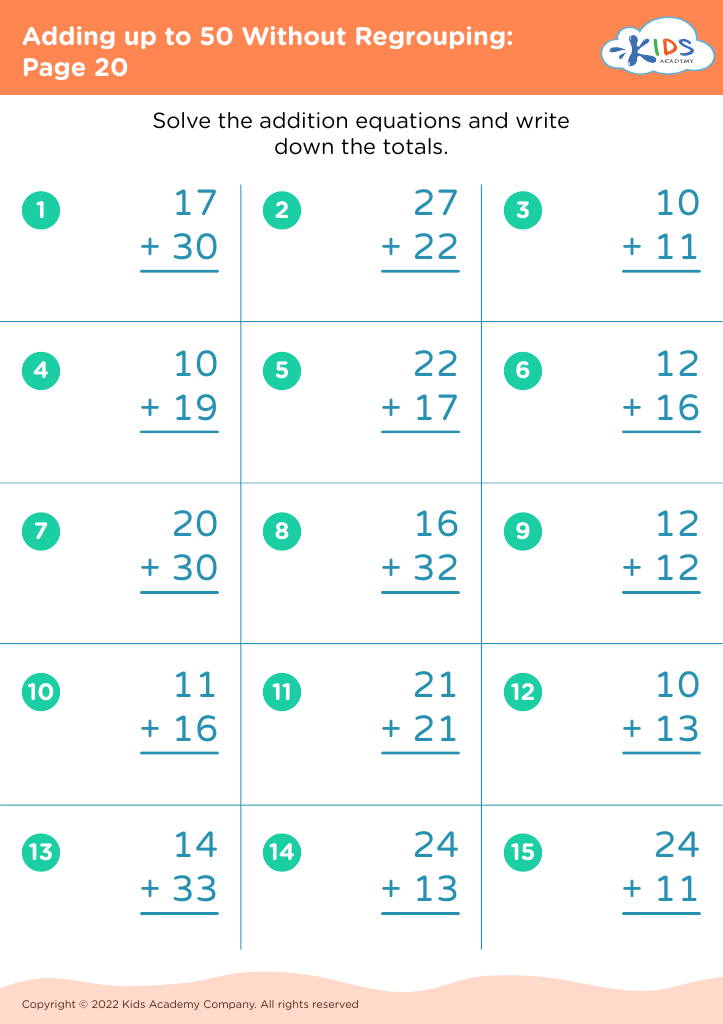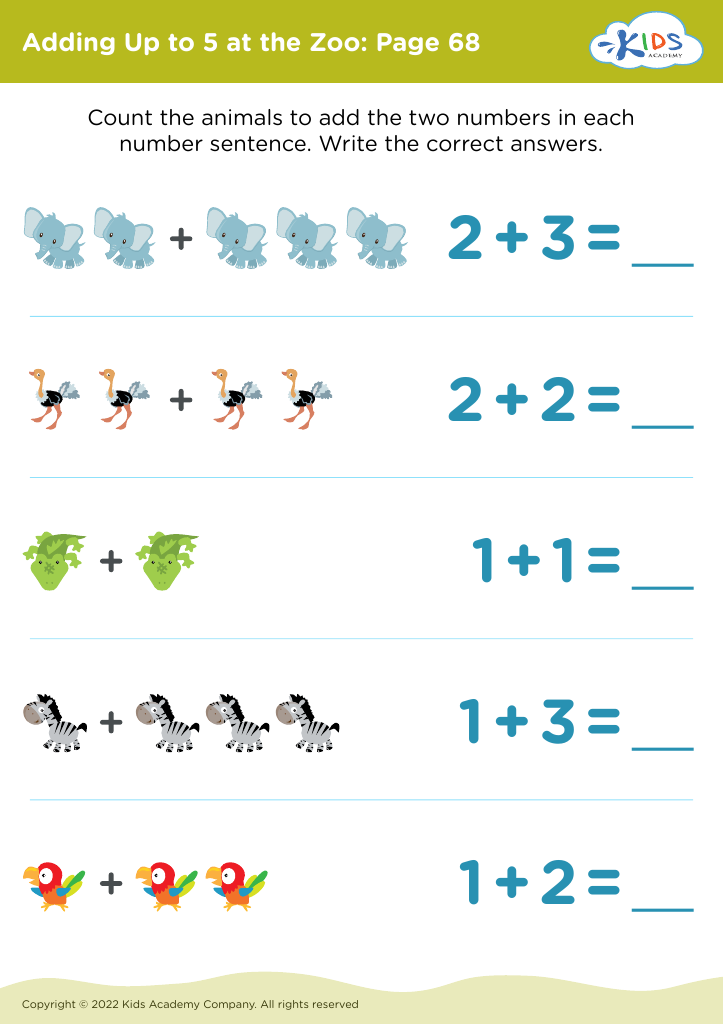Following instructions Math Worksheets for Ages 5-9
45 filtered results
-
From - To
Discover our engaging "Following Instructions Math Worksheets" designed for children ages 5 to 9. These worksheets focus on enhancing critical listening and comprehension skills through fun and interactive math tasks. Each activity encourages students to follow specific directions while solving problems, fostering both independence and the ability to work collaboratively. Our resources cater to various learning styles, featuring colorful visuals and age-appropriate challenges that stimulate young minds. Perfect for in-class use or at-home practice, these worksheets help reinforce essential math concepts while making learning enjoyable. Explore our collection to support your child’s journey toward becoming a confident and capable learner!


8 Petals Worksheet
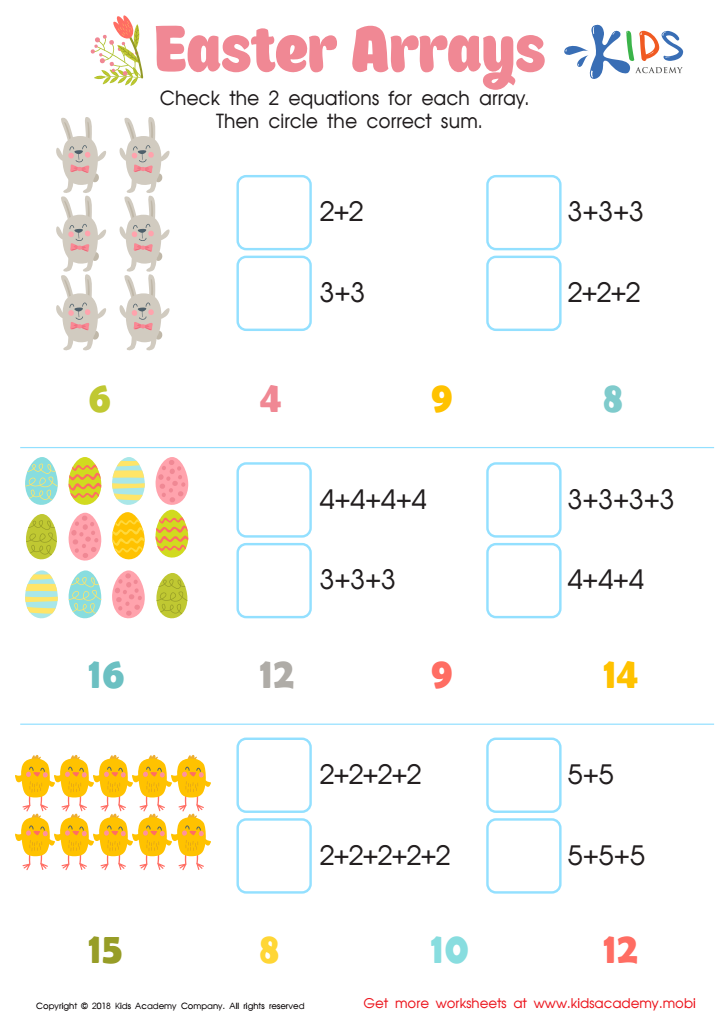

Easter Arrays Worksheet
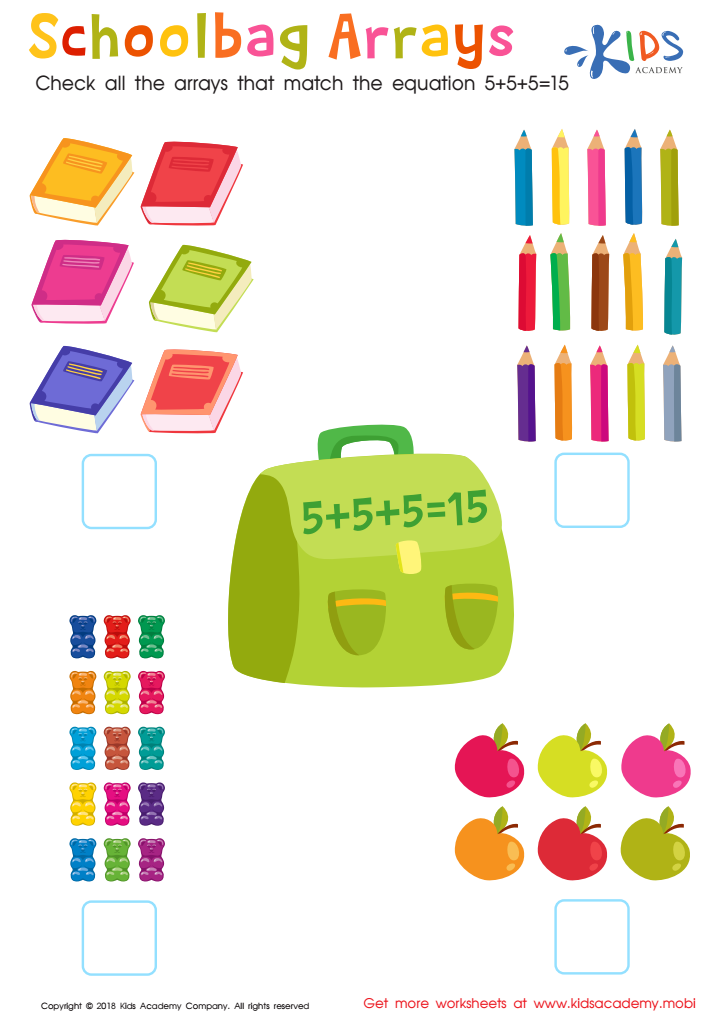

Schoolbag Arrays Worksheet
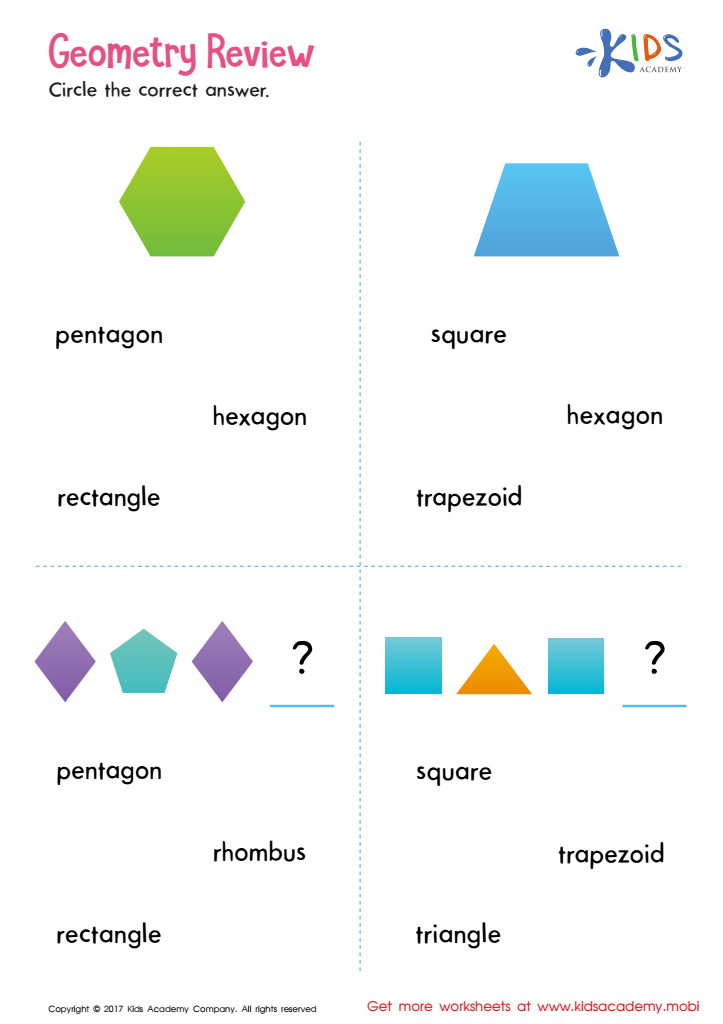

Geometry Review Printable


6 Parrots Worksheet


Subtract Tens: Spooky Math Worksheet


Let's Learn to Draw Hearts And Stars Printable
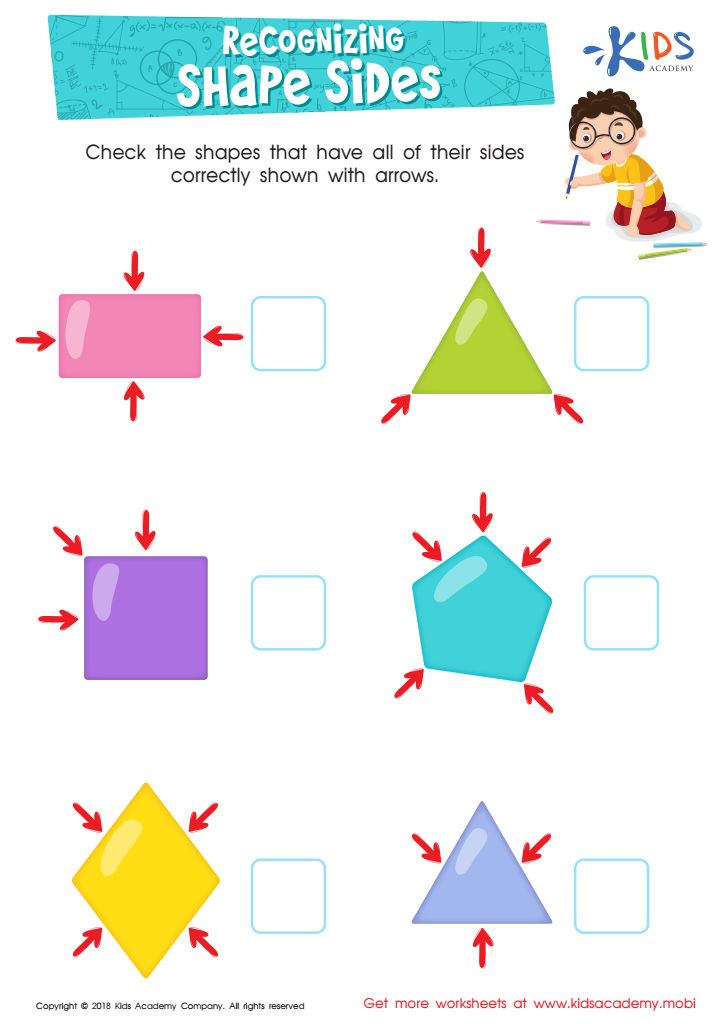

Recognizing Shape Sides Worksheet


Color the Shapes Worksheet
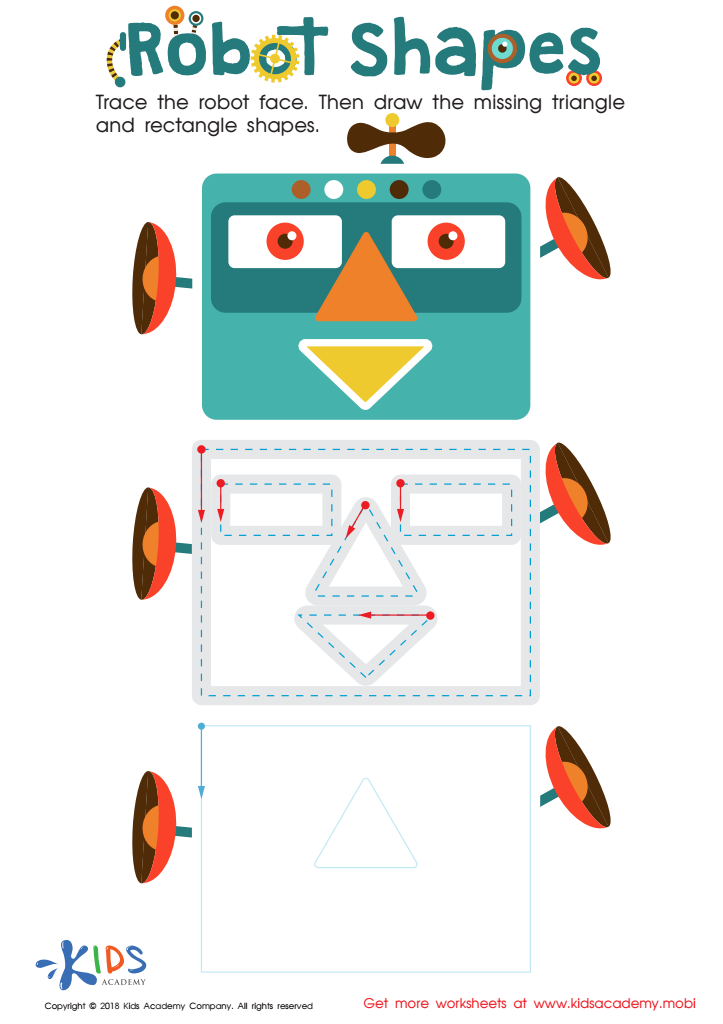

Robot Shapes Worksheet
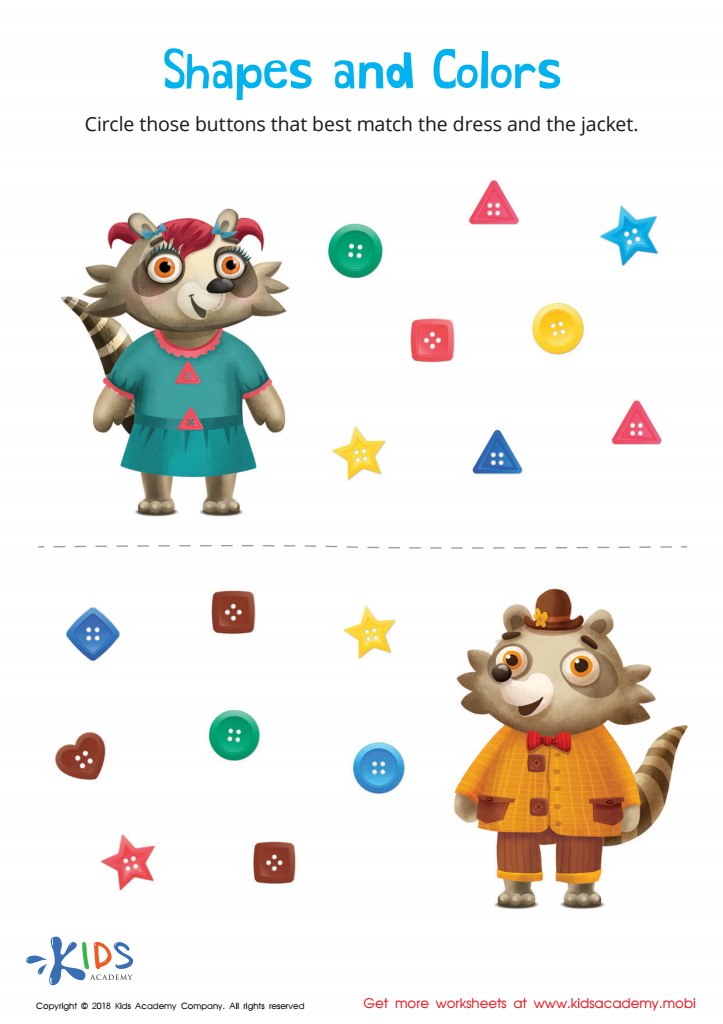

Shapes and Colors Worksheet


Skip Counting by 10 Through Our Community Worksheet
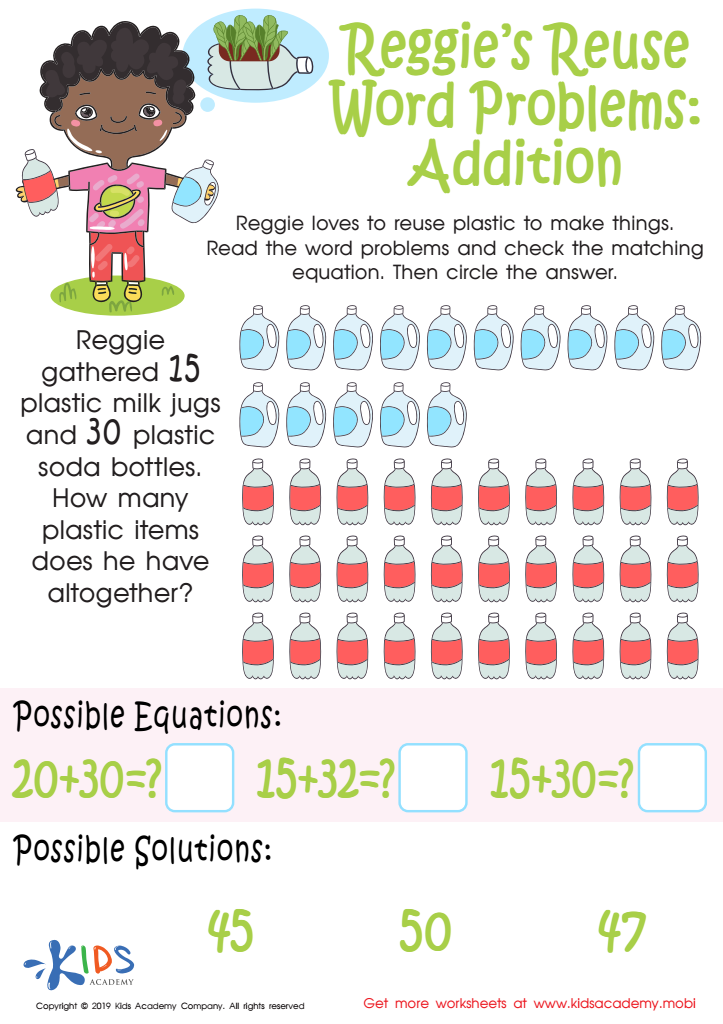

Reggie's Reuse Word Problems: Addition Worksheet
Following instructions in math is crucial for children aged 5-9 as it lays the groundwork for their future learning and problem-solving skills. At this stage of development, children are mastering foundational concepts such as addition, subtraction, and understanding shapes and patterns. When parents and teachers emphasize the importance of following instructions, they not only help students comprehend complex concepts but also foster essential skills like attention to detail and adherence to processes.
Moreover, understanding and following instructions in math builds a sense of discipline and responsibility in young learners. This can translate into improved performance across other subjects as students learn to approach tasks methodically. Furthermore, math often involves step-by-step procedures, so mastering this skill empowers children to tackle increasingly challenging problems with confidence.
Additionally, engaging students through math instructions allows for the development of critical thinking and reasoning. As children learn to analyze and execute given tasks, they cultivate an inquisitive mindset that is vital for lifelong learning. By focusing on this skill, parents and teachers are investing in their children's overall academic success and nurturance of positive attitudes towards learning, ultimately preparing them for more advanced studies in the future. Consequently, fostering this ability is essential for comprehensive educational growth.

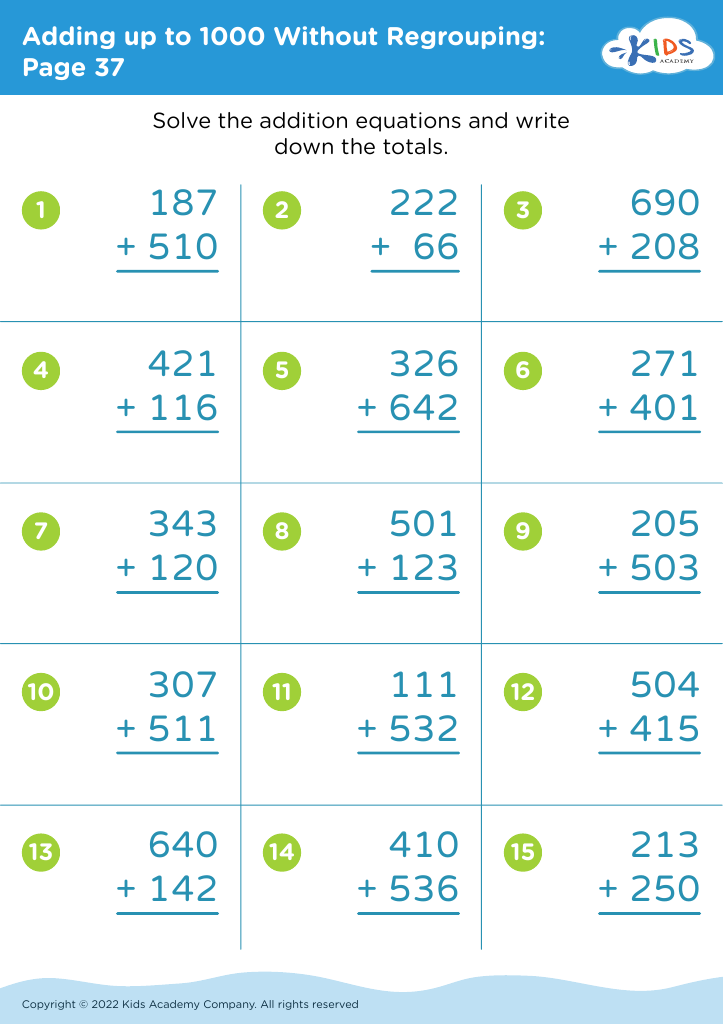
 Assign to My Students
Assign to My Students

